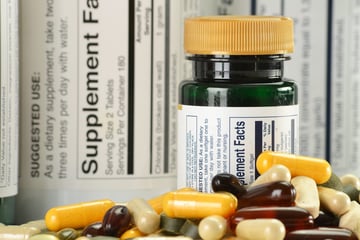Strong supplier management practices are critical to any organization, and are the key to ensuring successful production, that regulatory compliance is met, and that good relationships with partners across the supply chain are established. For food and supplement manufacturers in particular, strong supplier management is perhaps even more crucial to daily operations, enabling them to better identify and mitigate potential risks related to allergens, contaminants, and other food hazards.
In the Food and Drug Administration (FDA)’s New Era of Smarter Food Safety, which prioritizes new business models, technology-enabled solutions, and a culture of greater food safety, what does managing suppliers look like? Here are five best practices for managing suppliers in our current modern food era:
1. Establish Clear Criteria for Supplier Selection
Food manufacturers should develop a clear set of criteria that suppliers must meet to be considered for your business. Consider qualifications such as quality standards, pricing, delivery schedules, certifications, and a supplier’s ability to meet regulatory compliance. These criteria should be reviewed regularly and updated as necessary. Your suppliers are an extension of your business, so select collaborative partners that align with your organization’s values and goals, too.
2. Conduct Regular Supplier Assessments
Regularly assess your suppliers to ensure they are meeting your quality and safety standards. You will also want to routinely check to make sure they have the necessary certifications and are following protocols and processes to meet regulatory compliance. These assessments may involve on-site audits, product testing, and reviewing supplier documentation related to the supplier’s quality management system.
3. Foster Communication and Collaboration with Suppliers
It is always best practice to establish open lines of communication with your suppliers so they understand your expectations and requirements. Setting up those channels can help you quickly address any issues that may arise, such as sharing updated information on product specifications, production schedules and delays, and other quality control measures. Fostering a culture of effective communication and collaboration with your suppliers will also ensure that everyone is on the same page and prepared to take appropriate action if and when a food quality issue occurs.
4. Invest in Technology
Leverage a technology solution to help monitor supplier performance and regularly identify any trends or issues that may impact your business. This can involve tracking metrics such as on-time delivery, product quality, or a supplier’s ability to accurately and quickly complete compliance documentation. A supplier management platform also provides a centralized location for you to manage supplier documentation, conduct those assessments that we mentioned earlier, and have access to performance data exactly when you need it.
5. Develop a Contingency Plan
Develop a contingency plan to address supplier disruptions. There is value in identifying alternative suppliers, sourcing alternative ingredients or materials, or pursuing alternative production processes if something goes awry. The pandemic forced many manufacturers to reconsider their contingency plans – and in some cases, completely establish new ones – when they realized they did not have the backup resources necessary to continue with business as usual. So, it is always best to have a “plan B,” or even a “plan C,” in place in case unexpected circumstances arise.
Even when following the above best practices, there may be external factors that would require manufacturers to adjust suppliers, like:
- Allergen Regulation Changes: Food allergen regulations may change due to new scientific research, evolving consumer preferences, or updates in government regulations. These changes may require manufacturers to adjust their ingredient lists, update labeling, and switch up manufacturing processes to avoid potential allergen cross-contact, ensure the safety of their products, and meet compliance with regulatory requirements. If a supplier is unable to provide sufficient documentation on allergen control measures or cannot guarantee the safety of their products, manufacturers may need to find an alternative supplier who can, in fact, meet those standards.
- Supply Chain Disruptions: Supply chain disruptions can be caused by a range of factors such as natural disasters, transportation issues, economic instability, or labor shortages, among others. When these disruptions occur, manufacturers may face challenges in obtaining the necessary raw materials, components, or finished goods from their existing suppliers and may need to adjust suppliers to ensure the continuity of their business operations and maintain product quality standards. This may involve evaluating alternative sources of supply or working with new suppliers to develop new products or processes. Manufacturers may also need to adjust their specifications or requirements to accommodate the new supplier’s capabilities and still maintain production schedules and meet customer demand.
- Economic Volatility: Economic volatility, like an inflation or recession, can cause manufacturers to change their suppliers for a variety of reasons. When inflation occurs, the cost of raw materials, labor, and other inputs can increase, which can lead to higher production costs for manufacturers. As a result, manufacturers may need to adjust their suppliers to manage their costs and maintain profitability. This may involve finding new suppliers who can provide the same inputs at a lower cost, negotiating with existing suppliers for better pricing, or seeking out alternative materials or products that are more cost-effective. However, manufacturers must ensure that any changes in suppliers do not compromise the quality or safety of their products, which could result in a costly food product recall.
Trustwell Can Help
Managing suppliers involves a range of practices and strategies to ensure the safety, quality, and consistency of the ingredients and products used in the food manufacturing process – particularly with evolving regulatory requirements and an increasingly global supplier network. It is important for food and supplement manufacturers to stay informed of the latest regulations, conduct regular supplier assessments and audits, and invest in the right platforms to help streamline their supplier management efforts.
In the current era, strong supplier management practices are key to ensuring compliance and, ultimately, keeping the consumer safe. For food and supplement manufacturers looking for additional tools and resources to help navigate regulatory compliance and ensure consumer safety – from accurate labeling and formulation when suppliers change, to more visibility into supplier documentation – connect with our team at Trustwell today.
Tag(s):
Food Safety
Other posts you might be interested in
View All Posts
Food Industry
6 min read
| April 26, 2023
6 Steps to Onboard New Suppliers for Food and Bev Manufacturers
Read More
Supplier Compliance
5 min read
| May 24, 2019
Establishing Supplier Management Best Practices
Read More
Food Labeling
12 min read
| March 15, 2023

